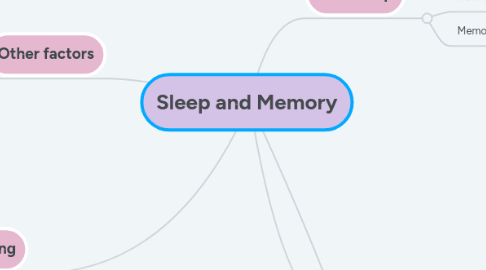Sleep and Memory
by Brittany Verlenich


1. Other factors
1.1. Recording dreams frequently might produce better memory of dreams, or better memory in general.
1.1.1. Though more study is needed, there may also be something to do with the act of recording dreams, or waking up several times in one night, in relation to memory.
1.2. Waking up frequently might produce better memory of dreams, or a better memory in general.
2. Connection to Learning
2.1. There might be a connection between the amount and type of sleep a student gets, and how much they can remember. Once we can get more conclusive results (assuming more students haven't been done), we can make better recommendations on the length and type of sleep most needed by students.
3. Implications for educators and students
3.1. Many students come to school with inadequate sleep.
3.1.1. This impacts their mood and health.
3.1.1.1. If their mood or health isn't conducive to learning, their academic performance will also suffer.
4. REM Sleep
4.1. Participants recording dreams from REM sleep had a more difficult time recounting pictures from the memory task.
4.2. Memorable, story-like dreams
5. Non-REM Sleep
5.1. Based on study findings, non-REM sleep may better help people to remember things than REM-sleep can.
5.1.1. Subjects remembered tasks better after being woken up from and recording after non-REM dreams.
